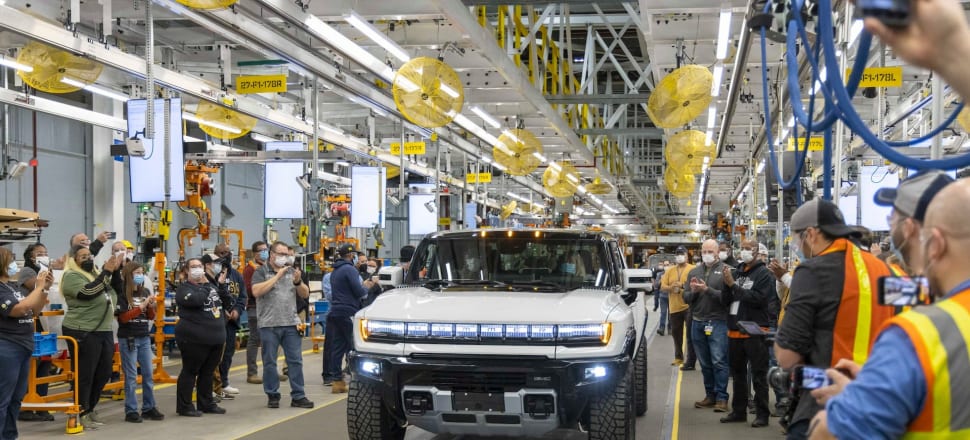
Repealing fair pay agreements will give rise to more difficult forms of collective bargaining
As the local union movement prepares for a major shakeup with National repealing Fair Pay legislation within 100 days, US workers have had a major win that might inform New Zealand’s way forward.
In the past few days, the United Auto Workers has reached a tentative deal with the three largest Detroit car manufacturers to end six weeks of strike action.
If approved, the United Auto Workers’ deals with General Motors, Ford and Stellantis (which makes Jeeps in Detroit), will boost worker pay by over 30 percent (including cost-of-living adjustments) over the four years and eight-month term agreed to.
READ MORE: * A year of union revival set to repeat * Junior doctors feel forgotten as bargaining looms * Sharemarket on course for third successive losing month
Speaking at the White House, President Joe Biden came out strongly in support of the union’s achievement.
“Today’s historic agreement is yet another piece of good economic news, showing something I’ve always believed: worker power is critical to building an economy from the middle out and the bottom up, and so is economic growth.”
New Zealand Council of Trade Unions secretary Melissa Ansell-Bridges said the dynamic delivered by pattern bargaining like the auto union had achieved in Detroit was what fair pay agreements were designed to deliver in New Zealand.
“What you're seeing there is that employers in the States actually recognise that it's a good way of operating, that industry bargaining can actually have really good outcomes for employers too.”
Ansell-Bridges and the Council of Trade Unions have called for fair pay agreements to be kept by the incoming government.
“You have the sort of minimum terms and conditions being set across an industry as a whole and you can see really good outcomes for working people when you do have that industry bargaining,” she said.
“It's a different situation in the States to what happens here, but the principle of having industry-wide bargaining, we know from looking internationally certainly leads to better outcomes for working people.”
New Zealand has another form of industry-wide bargaining outside of fair pay agreements in the form of multi-employer collective agreements, but Ansell-Bridges said that process had a few problems and wasn’t commonly used.
The US has a much more heavily unionised private sector than New Zealand, which has a low level of union membership across the board, with a higher concentration of membership in the public sector, such as teachers and health workers.
The Employers and Manufacturers Association head of advocacy Alan McDonald said with fair pay agreements on the way out, he expected more emphasis to be placed on large scale multi-employer collective agreements.
Like the Detroit union action, McDonald said those agreements might not be nationwide or all-encompassing, instead targeting a few employers, meaning it would ensure it was suitable and didn’t disadvantage smaller organisations with different models, which was a common criticism of fair pay agreements.
Another difference between multi-employer collective agreements and fair pay agreements is that there wasn’t an ability to strike for a fair pay agreement.
Employees could strike for something around a fair pay agreement, such as a cost of living increase, but not for the agreement itself.
Multi-employer collective agreements don’t have such a distinction, but McDonald doesn’t expect to see more strikes.
“You'll see more emphasis put on larger scale agreements by the unions because that's where they want to go and that's their reason for being. But we don't know yet, we've got to get rid of the old regime first.”
John Croker, the national secretary of hospitality union Unite, said without fair pay agreements, industry-wide action was incredibly difficult for the private sector.
While strong groups like the Teachers Union can and have rolled out nationwide strikes, Croker said there weren’t many places in the private sector where that was an option.
“Sector bargaining is pretty standard in the developed world. New Zealand would be going back to being an exception, and when we look at fair pay agreements that have come forward, most of them are the essential workers that we just saw a couple of years ago.
“So for the government to turn around and say 'no, essential workers can go stuff it' is pretty rough.”







